|
The Early Years
It all started in
1898 when brothers Edwin and James White moved to Wolverhampton
from their home in Bury, Lancashire. They started a business in
North Street making ginger beer, from where they bottled the
beer and delivered it to their customers by horse and cart.
|
|
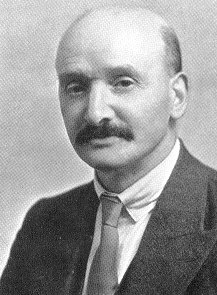
Joe Holt. |
Their two
horses, "Teddie" and "Bonnie" were brought to Wolverhampton,
from Bury by Edwin White. The business was successful and
two more family members were recruited; Fred and Harry
White.
Larger premises were soon required and the business was
transferred to Chapel Street, Blakenhall where 23 years old
Joe Holt started as the first outside employee. Their ginger
beer sold well and they had many customers both in
Wolverhampton and the surrounding area.
Success continued and
in 1901 Fred White and Joe Holt opened a new branch in Phillips
Street, Birmingham. Within 11 weeks they had built-up 5 rounds.
Other branches soon followed, beginning with one in Leicester in
1902, a second in Derby in 1903 and a third in London in 1905. |
| Edwin and Harry White, and Mr. J. Austin
Birch went to London to supervise the running of the new
branch. Like the others it was a great success and soon
larger premises were opened there.
Back row centre:
Joe Holt.
Second row far right:
Fred White. |

A group of employees in about 1907. |
|
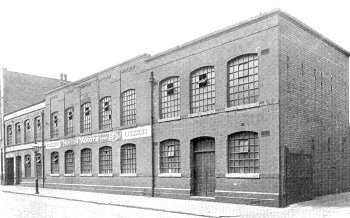
The Aston Brook Street premises in
Birmingham. |
The Birmingham branch also prospered and new premises
opened in Aston Brook Street. In 1912 the White family
began to think about adding good quality milk to their
product range and in 1913 Edwin and Fred White opened
an experimental milk bottling plant at the rear of the Aston
Brook Street premises. It was called the “Midland Counties
Dairy”. |
| Left to right:
W. Harris, Joe Holt, and Fred Bowers. |
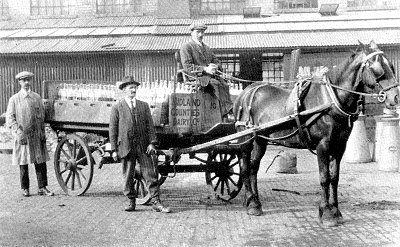
On the milk round. |
|
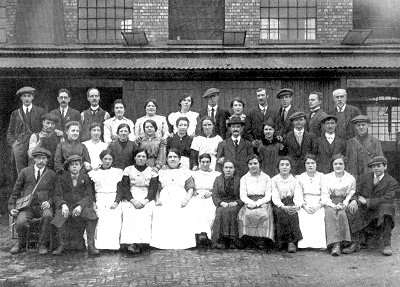
Some of the staff at Aston Brook
Street in 1913. |
February 1915
saw the start of the German submarine 'blockade' of
the British Isles which caused many shortages of foodstuffs
including sugar. Due to this the ginger beer side of the
business suffered and a number of branches closed. The
Wolverhampton and Derby branches remained open and continued
to produce ginger beer for many years. |
| Mr. F. Bowers, Junr. on his milk
round with his horse and cart. |
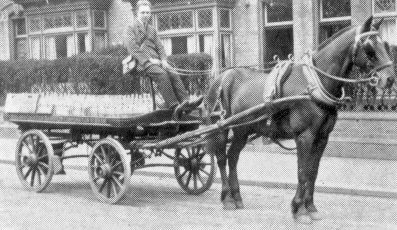
Delivering milk the old way. |
|
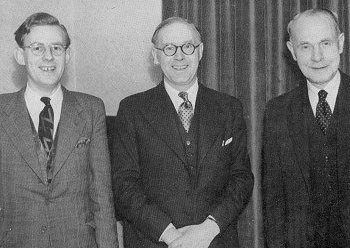
Three generations
of the White family. On the right is James. G. White,
one of the company founders. In the centre is his son,
Arthur and on the far left his grandson, Nicholas. |
The dairy side of the business however
continued to prosper and took over from ginger beer production
and in 1919 a dairy was opened in Wolverhampton at Cobden Lane, Blakenhall. The ginger beer side of the business at Chapel
Street continued under the name of White Brothers until at least
the mid 1960s as can be seen from the photograph below. |
|
After the war a wide range of dairy products were introduced and
in 1922 the “Quality Milk Scheme” began.
Farmers were paid bonuses for richer and cleaner milk and soon
the company’s milk became some of the best in the country.
1923 saw the introduction of milk sales to schools, which became
very important to the company. The same year also saw the
introduction of butter and ice cream manufacture and the sale of
cream and eggs. |
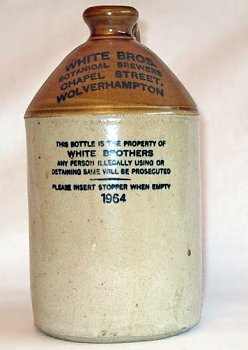 |
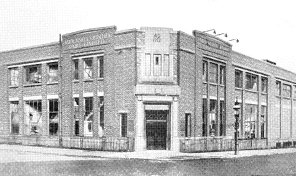
Birmingham dairy in 1923.
|
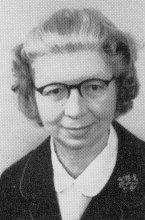
Miss G. Gibbs |
The company’s dairy at Cobden Lane was the site
of the company’s Wolverhampton office and in December 1926 the
first member of the office staff, Miss G. Gibbs started work
there. She initially ran the office single-handed and stayed
with the company until her retirement 42 years later.
The company was very forward thinking and cared about
employees’ welfare as can be seen from the introduction of a
pension scheme in 1928. This was one of the first such
schemes in the dairy industry. |
| The company continued to be very successful and plans
were made for a new dairy at Wolverhampton. This was first
publicly announced in January 1927 at the company’s annual
dinner at the Victoria Hotel in Wolverhampton. Managing Director
Mr. Edwin White stated:
“…the company has acquired a site in Wolverhampton for
the building of a fresh dairy, equal if not better than the
dairy in Birmingham. The site is in Lea Road, Wolverhampton,
where a board has been displayed on the site for some time…” |
 |
 |
|
 |
| Return
to the beginning |
|
Proceed
to the New Dairy |
|